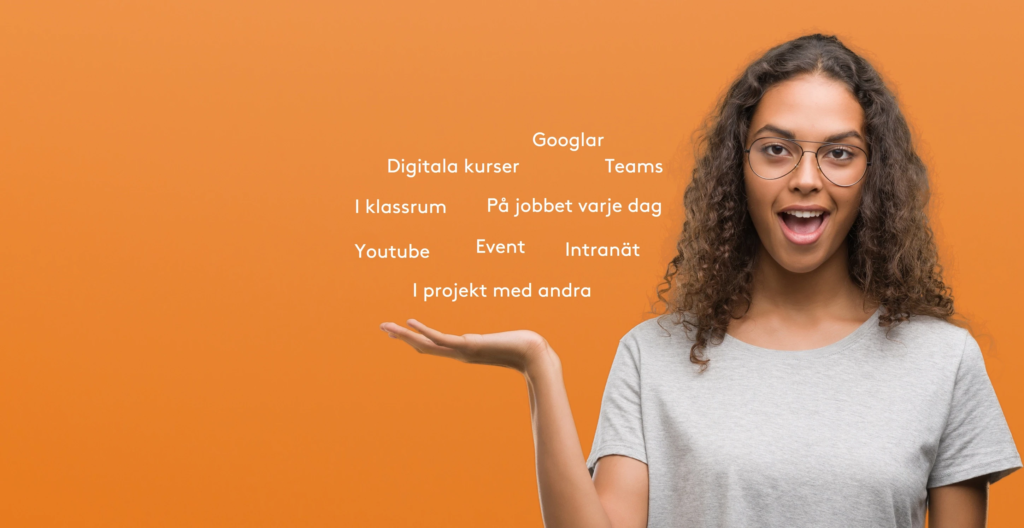Social learning is now a major trend that organizations and companies are looking at, and for good reason. Research has shown that people are more successful and more motivated to achieve results when they work and learn new things in groups, by as much as 70%. It also drives us to want to learn new things and share what we know. Social learning can also be a way to enable a corporate culture that promotes a growth mindset – inspiring employees to share knowledge, collaborate, work more innovatively, ask for feedback, and share experiences with each other.
Learning something completely new on our own is neither easy nor effective because we don’t know what to focus on. In fact, we are programmed to learn new things and develop by being social from the moment we are born. Social learning theory* proves that our brains are designed in such a way that we learn best by copying, observing and instructing. Despite this, many HR and L&D professionals are still pursuing initiatives that go against this. Many employees still have to complete long digital training sessions without the ability to communicate. That’s not very smart because they will only have access to the knowledge you have chosen to push out – but if you also give them a channel to talk, brainstorm and share experiences and knowledge, you have created a connected group that will be able to develop the knowledge from a variety of perspectives, which is likely to generate more innovative results.
A report by Global Workplace Analytics employees suggests that we now spend less than 50% of our working day at our desks. It shows that thinking digitally and mobile first is just as important as social learning. But today, technology is so advanced that this is no longer an issue. Digital training MUST be easily accessible to employees so they can absorb new knowledge when they want, how they want and when they need it.
It’s pretty clear that mobile social learning is no longer a theory of the future, but an actual truth of how we learn. Companies that will be successful in engaging and developing their employees are those that use today’s technology to facilitate, rather than eliminate, meaningful social connections and knowledge sharing.
*Read more about social learning theory on psychologytoday.com.
Written by Tereza Kennedy Olsen, Creative Director & Founder, Atom Collaboration




